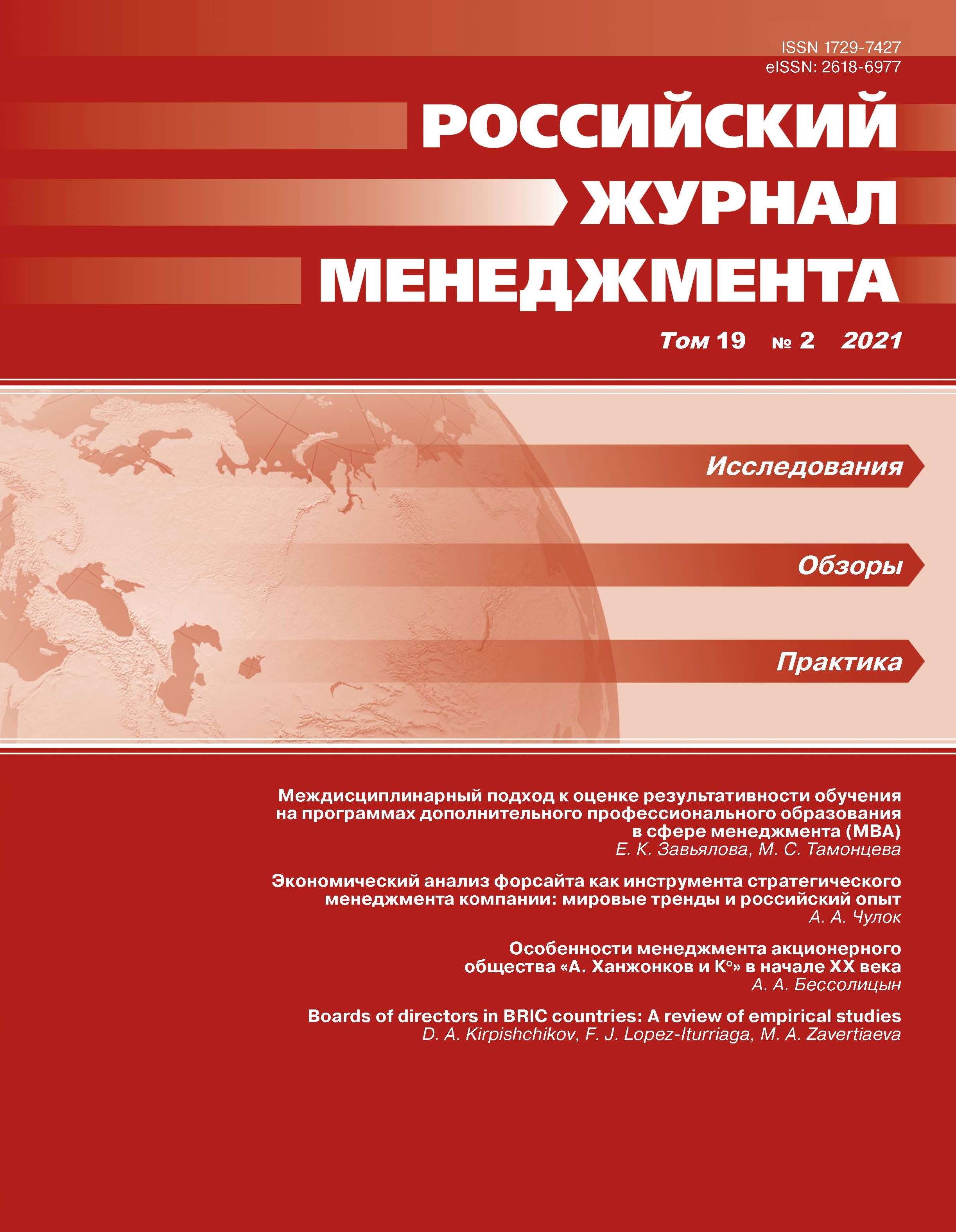An interdisciplinary approach to evaluating the effectiveness of postgraduate education (MBA)
DOI:
https://doi.org/10.21638/spbu18.2021.201Abstract
This article is devoted to the problems of additional professional education in Russia. The results of an exploratory research are presented, the purpose of which was to identify subjective and objective learning factors associated with the development of business careers of graduates of MBA programs. The role of subjective (usefulness of knowledge, business connections) and objective (academic performance) learning factors in the development of a business career is evaluated. The obtained data confirm the validity of using the intelligent career model to analyse the features of the professional actualization of graduates after graduation. The importance of subjective criteria for evaluating the usefulness of the acquired knowledge for both objective (change in income, status) and subjective (satisfaction with the ratio of resource and result) career success is noted. It is shown that academic performance is not related to objective criteria of business career development. It is revealed that the form of employment (entrepreneur or corporate employee) is associated with subjective attitude to knowledge assets and with career development after obtaining an MBA degree.
Keywords:
additional professional education, MBA, human capital, knowledge assets, intelligent career model, career, career success
Downloads
Downloads
Published
How to Cite
Issue
Section
License
Articles of the Russian Management Journal are open access distributed under the terms of the License Agreement with Saint Petersburg State University, which permits to the authors unrestricted distribution and self-archiving free of charge.





